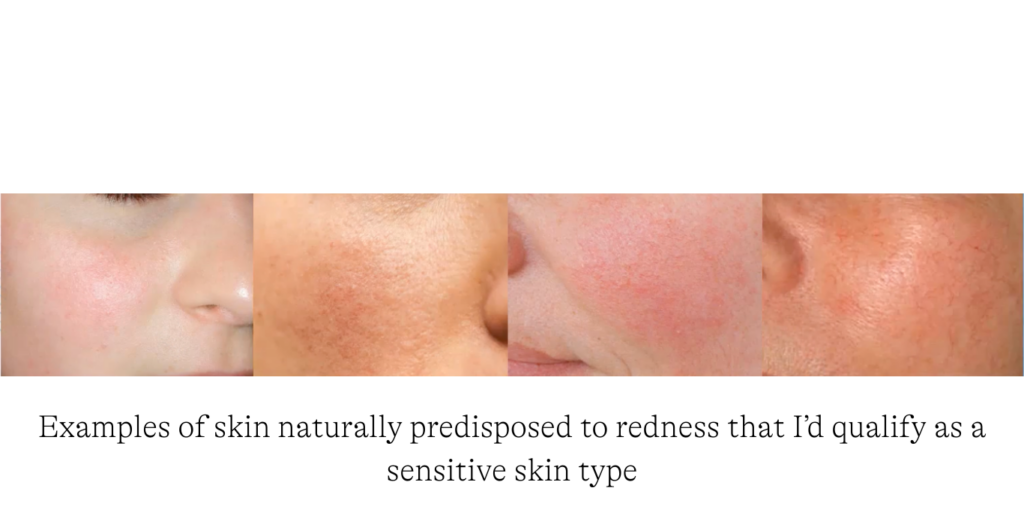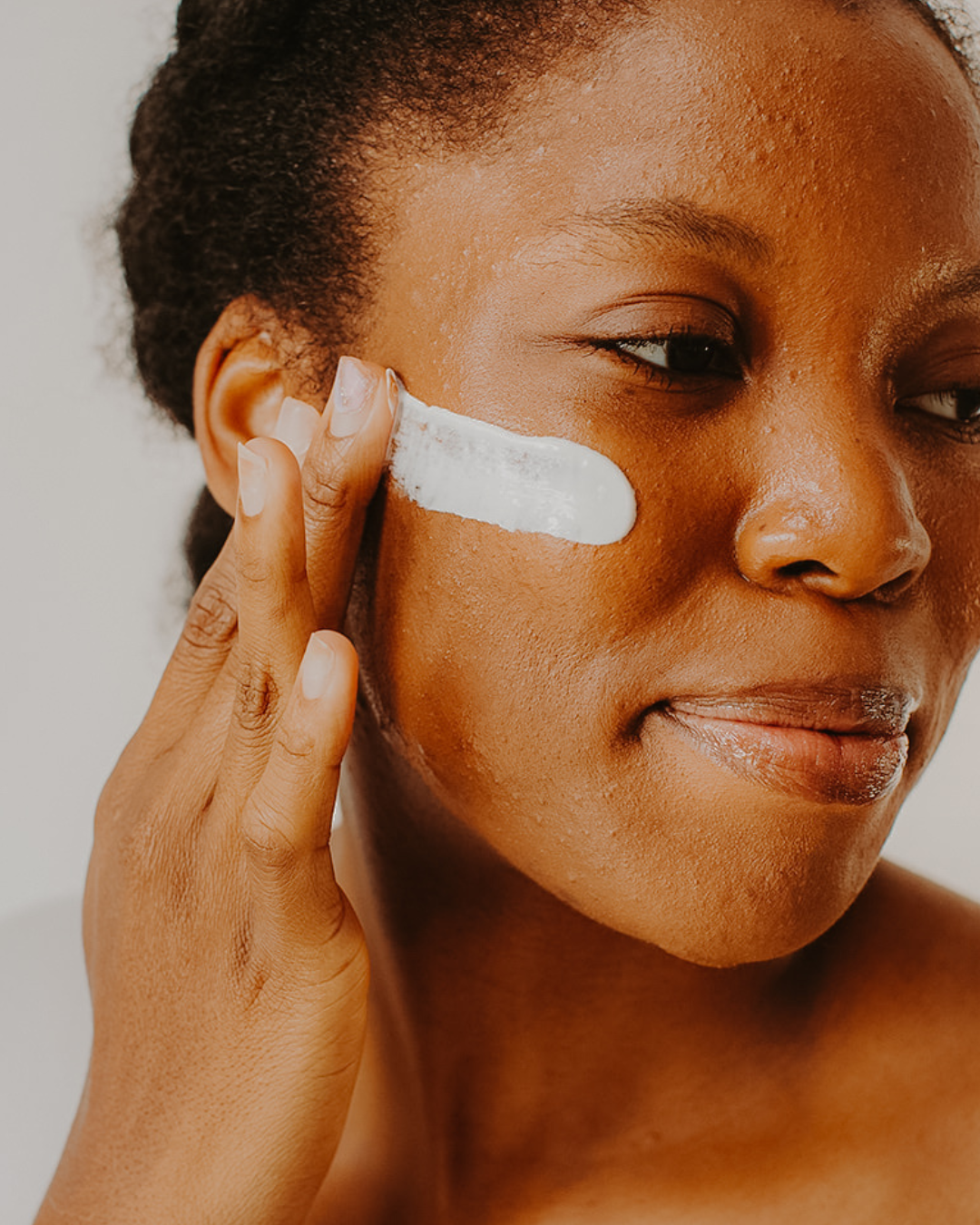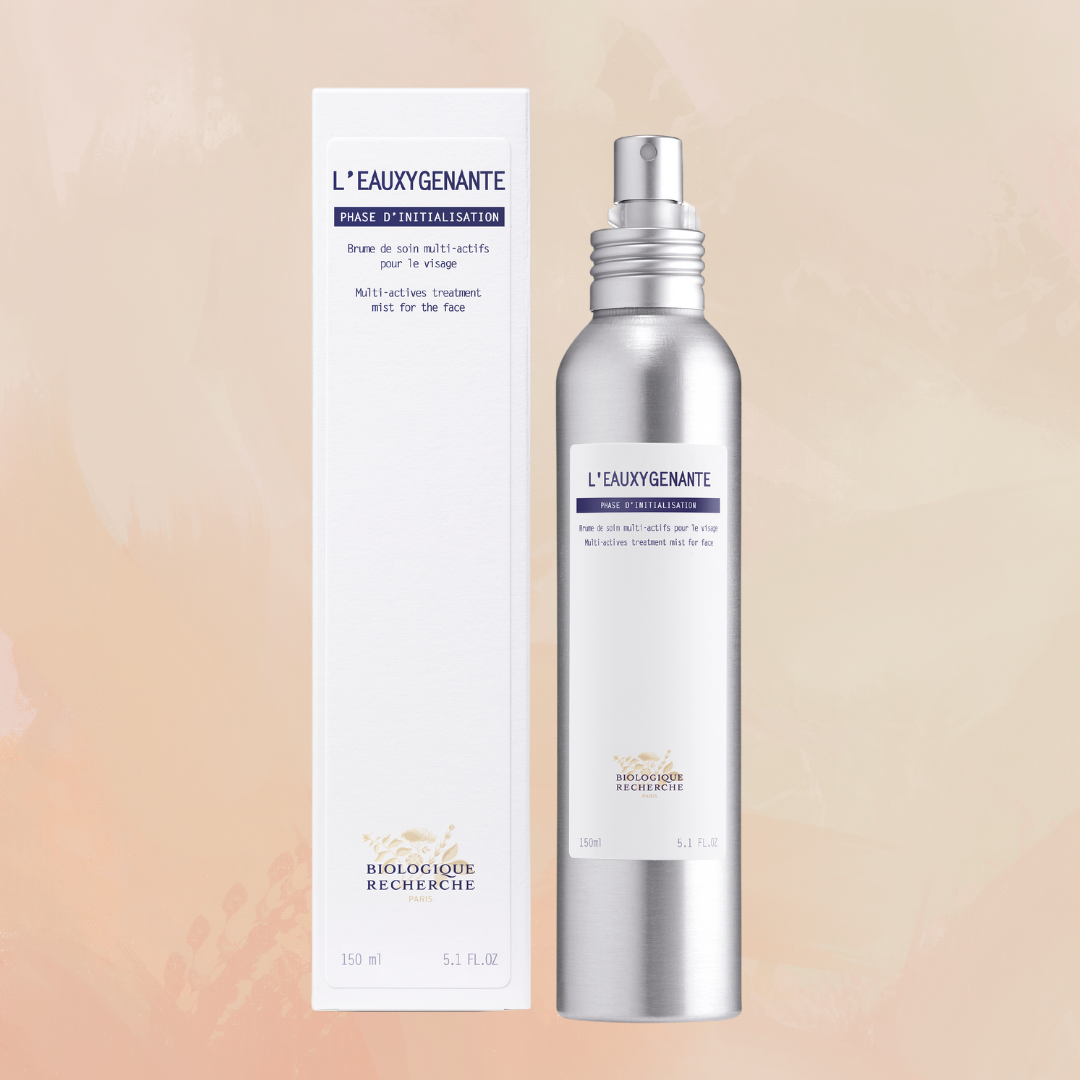The most important thing you need to know when caring for your skin and choosing your own skin care is your skin type.
Knowing your skin type and treating your skin the way it needs is essential for healthy skin and a strong skin barrier. Skin type typically refers to the balance of oil and water in the skin and your skin’s natural predisposition to that balance. It can also change with age, health, medications and environment.
Skin care is never one-size-fits all; using the wrong skin care for your skin type can worsen or even create skin conditions like congestion, acne, dryness, oiliness and can accelerate skin aging.
So What ARE the Different Skin Types?!?
Normal Skin: Feels balanced, not noticeably oily or dry, and feels even over the whole face. People with a normal skin type seem to experience the least amount of skin “issues” or to pay the least attention to their skin (probably because they have fewer skin issues).
Oily Skin: Prone to lots of oil production and shine. A true oily skin type is actually the most rare of all the skin types (surprinsing right!?!?). Those with true oily skin will also have oily scalps, chests and backs and will look visibly shiny more often.
Also of note: Although those with oily skin CAN be prone to acne, having acne is not a skin type – it’s a skin condition that also affects those with combination and dry skin.
Dry Skin: Doesn’t product much oil of it’s own and can feel tight and be flaky. People with naturally dry skin will often be dry all over their bodies and often feel like their skin looks “dull”.
Combination Skin: A mix of dry and oily areas. Most people sit in this category – with oilier noses and t-zones.
Sensitive Skin: A lot of us actually have a sensitive skin type. Those of us who have more redness in our skin, have rosy cheeks and tend to flush easily have collagen fibres that are more fine, and higher vascular activity. This means the collagen in our skin is more fragile, the skin barrier can be more easily disrupted and sensitive skin tends to react to strong active ingredients and extreme weather or temperature changes (like hot showers) – causing redness, irritation and dehydration.
A lot of people will have a sensitive AND oily or dry skin type. I myself have a true oily AND sensitive skin – most of my face AND my scalp and chest are oily AND I naturally have red cheeks and can react very strongly to actives like vitamin C.

How to determine what skin type you have.
Cleanse Your Skin: Use a gentle cleanser and allow your skin to rest for an hour to assess its natural state.
Check for Oil: After an hour, press a blotting paper on your face to see how much oil is absorbed. Evaluate if your T-zone (forehead, nose, chin) is shiny or if the rest of your face feels dry.
Assess Dryness: Look for areas that feel tight or flaky, particularly after cleansing. People with naturally dry skin tend to know their skin is dry. It never feels “okay” without applying moisturizer after cleansing.
Note Sensitivity: Does your skin react to products quickly, with redness or irritation? Do you naturally have pink cheeks or pink areas of your skin? Does your skin react strongly to heat or weather?
Choosing the Right Skincare Based on Your Skin Type
Choosing the right skincare for your skin is all about balancing the water and oil content in your skin to keep it happy. We typically do this by choosing the cleanser and moisturizer that will be right for your skin type.
Normal Skin: Focus on hydrating and protecting the skin. A gentle cleanser that leaves the skin feeling soft and a simple moisturizer – like the Dermaviduals DMS High Classic is typically all a normal skin needs.
Oily Skin: For a true oily skin we want to choose cleansers and moisturizers that are on the lighter texture side. We want to focuse on adding water-based ingredients instead of thick, occlusives like heavy oils and butters.
It is erroneous to assume that oily skin should avoid all oils. All skin, including oily skin can benefit from the right oils – for oily skin we want to focus on lighter oils like squalane, jojoba and rosehip seed oil.
Dry Skin: You’ll want to use oil and milk-based cleansers and moisturizers made with a higher lipid content aka, more oils – we want to add what your skin has a hard time producing on it’s own. This will help keep your skin barrier strong, and will keep your skin glowing.
Combination Skin: Choose products that address what the majority of your skin feels like; if you have combination skin but only your nose feels oilier – choose skin care that will nourish your skin and go lighter when applying to the oilier areas of your face. If the majority of your skin feels more on the oily side but you have dry cheeks, then choose skin care that tends to be on the lighter side.
Sensitive Skin: Avoid skincare made with fragrances, essential oils, dyes, and strong actives. Our two main skincare brands – Biologique Recherche AND Dermaviduals are made to strengthen the skin barrier WHILE adressing skin concerns. You don’t have to choose between effective skincare and soothing your skin when you’re using the best quality skin care that’s right for your skin.
The Most Common Mistakes People Make when choosing Skincare
Choosing a cleanser that is too stripping for their skin: After cleansing your skin should feel soft, not squeaky clean. That squeaky clean feeling means you’ve stripped the natural oils out of your skin (aka damaged your skin barrier).
Ignoring Sunscreen: Using SPF daily is a non-negotioable for ALL skin types. People with oily or acne-prone skin often skip sunscreen thinking it will clog pores and exacerbate acne – but using SPF will help keep your skin as healthy as possible. A suncreen like the Elta MD UV Clear is light and perfect for all skin types.
Harsh exfoliation and using too many strong actives: Harsh physical exfoliants can damage the skin’s protective barrier, and using too many strong actives can hinder your skin goals if you’re not paying attention to the signs your skin is giving you. Seeing redness or sensitivity? Your skin needs you to cool it with exfoliants/actives.
The Key to Healthy, Glowing Skin?!? Balancing your Skin Barrier First.
Your skin isn’t the same as anyone else’s – your skin care shouldn’t be either. Having the best skin of your life is all about meeting your skin’s needs for balancing water/oil by using skin care appropriate for your skin type, and then addressing skin concerns like acne, congestion, pigmentation, fine lines etc.
If you’re not sure what your skin type is, what it needs or where to start – come pay us a visit! There’s nothing we love more than helping you take the guesswork out of glowing skin.



Comments +